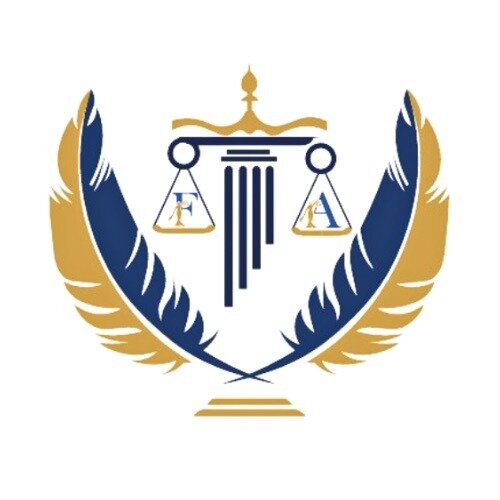Best Hiring & Firing Lawyers in Qatar
Share your needs with us, get contacted by law firms.
Free. Takes 2 min.
Or refine your search by selecting a city:
List of the best lawyers in Qatar
About Hiring & Firing Law in Qatar
In Qatar, the framework surrounding hiring and firing is primarily governed by the Qatar Labor Law, which sets forth the rights and obligations of employers and employees. The law aims to ensure fairness and protect both parties, promoting amicable work relations and ensuring equitable treatment in the workplace. Key considerations include employment contracts, working hours, termination, end-of-service benefits, and adherence to non-discriminatory practices. Employers are required to comply with strict procedures and conditions when hiring and terminating employees to ensure legal compliance and fairness.
Why You May Need a Lawyer
Engaging a lawyer versed in employment law can be crucial in several situations. For employers, legal advice can help ensure compliance with Qatar Labor Law while drafting employment contracts, handling disputes, or implementing termination processes. Employees may seek legal guidance when facing unfair treatment, wrongful termination, contract disputes, or discrimination in the workplace. Legal assistance can provide clarity, representation, and protection of rights in complex legal situations related to hiring and firing.
Local Laws Overview
The key aspects of hiring and firing under Qatar Labor Law include:
- Employment Contracts: Contracts must be written and specify job roles, salary, and duration. Probation periods and contract renewals are also defined legally.
- Working Hours and Conditions: Standard work hours are capped, with overtime provisions in place. Labor laws mandate rest periods, holidays, and leave entitlements.
- Termination: Employers must provide justification and adhere to notice periods. Terminations must follow legal protocols to avoid claims of wrongful dismissal.
- End-of-Service Benefits: Employees are entitled to gratuity pay upon completing their service term, calculated based on the duration and terms of service.
- Non-discrimination: Discriminatory practices in hiring, promotion, or termination are prohibited, promoting a fair and equitable workforce.
Frequently Asked Questions
1. What is the typical probation period for new hires in Qatar?
Under Qatari law, the probation period generally should not exceed six months. During this time, either party can terminate the contract on notice.
2. Can an employer terminate a contract without notice?
Termination without notice is permissible only under certain conditions, such as severe misconduct or breach of contract according to labor law specifications.
3. How are end-of-service benefits calculated?
End-of-service gratuity is calculated based on the employee’s final basic salary and their length of service, generally amounting to three weeks' wages per year of employment.
4. Are non-compete clauses enforceable in Qatar?
Non-compete clauses may be included in employment contracts but must be reasonable in scope, time, and geographical area to be enforceable by law.
5. What notice period is required for terminating employment?
The notice period typically ranges from one to three months, depending on the employee’s duration of service.
6. Can employees be terminated due to redundancy?
Yes, layoffs for economic reasons can occur, but employers must follow proper legal procedures and pay applicable benefits.
7. What are the rights relating to maternity leave?
Female employees are entitled to paid maternity leave, usually 50 days, with additional unpaid leave possible under specified conditions.
8. How can discrimination at work be addressed?
Victims of discrimination can file complaints with the labor department, and legal action may be pursued to seek remedies or compensation.
9. Is it mandatory to provide a written offer letter?
While an offer letter is not mandated, employment contracts must be in writing, detailing terms and conditions required by law.
10. What happens if no employment contract is signed?
In the absence of a contract, employment terms revert to the statutory minimums under the labor law, with evidence of employment necessary to claim rights.
Additional Resources
For individuals seeking further information, the following resources could be beneficial:
- The Ministry of Administrative Development, Labour and Social Affairs (MADLSA) provides resources and guidance on labor laws.
- Legal aid clinics or legal service providers offering consultations in employment law matters.
- Online portals and official gazette publications for updates and amendments to labor laws.
Next Steps
If you require legal assistance in hiring and firing matters in Qatar, it is advisable to consult with a specialized labor lawyer. Here’s how to proceed:
- Identify and contact reputable law firms or legal practitioners with expertise in employment law.
- Prepare documentation relevant to your case, including contracts, correspondence, and any notices received or issued.
- Seek an initial consultation to discuss your situation and get tailored advice on your legal options and obligations.
By obtaining informed legal guidance, you can effectively navigate the complexities of employment law in Qatar, ensuring your rights and responsibilities are upheld.
Lawzana helps you find the best lawyers and law firms in Qatar through a curated and pre-screened list of qualified legal professionals. Our platform offers rankings and detailed profiles of attorneys and law firms, allowing you to compare based on practice areas, including Hiring & Firing, experience, and client feedback.
Each profile includes a description of the firm's areas of practice, client reviews, team members and partners, year of establishment, spoken languages, office locations, contact information, social media presence, and any published articles or resources. Most firms on our platform speak English and are experienced in both local and international legal matters.
Get a quote from top-rated law firms in Qatar — quickly, securely, and without unnecessary hassle.
Disclaimer:
The information provided on this page is for general informational purposes only and does not constitute legal advice. While we strive to ensure the accuracy and relevance of the content, legal information may change over time, and interpretations of the law can vary. You should always consult with a qualified legal professional for advice specific to your situation.
We disclaim all liability for actions taken or not taken based on the content of this page. If you believe any information is incorrect or outdated, please contact us, and we will review and update it where appropriate.
Browse hiring & firing law firms by city in Qatar
Refine your search by selecting a city.















